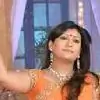 |
B R Chopra died Wednesday morning at his residence in Juhu, suburban Mumbai, after a prolonged illness.
Chopra began his career as a journalist in Lahore; after Partition, he moved to Delhi and then Mumbai.
His first film Karwat failed at the box office, but that was no precursor to what would follow; this forward-thinking filmmaker went to make many unforgettable movies, many of which became hits as well.
If he spoke of widow remarriage in his film, Sadhana, which was released in the fifties, he also spoke of divorce and its impact on women in Nikaah (released in the eighties)
rediff.com takes a look at some unforgettable films released under the B R Chopra banner:
Naya Daur (1957)
If our late Prime Minister Pandit Jawaharlal Nehru spoke of Fabian socialism in real life, it was B R Chopra who translated it for the silver screen.
When the attraction for Western glamour -- and the Western pattern of development -- became a popular trend, Chopra made Naya Daur, a black and white film that pitted Man against Machine.
The film was perfectly timed; India was a newly free country that was looking to adopt socialism. Naya Daur showcased the plight of the tonga (horse driven carriage) owners as a bus comes into their village. The bus is both cheaper and faster, so the villagers prefer it to the tongas whose owners lose their livelihood.
Finally, the leader of the tonga owners (Dilip Kumar) throws a challenge to the bus owner (Jeevan); a race is held between the tonga and the bus. The tonga wins, and all's well with the world.
The song Saathi haath badana, which spoke of the need for unity, was apt for a new India looking to make her mark. Unfortunately, when the film was released in its coloured version a year ago, it failed to find resonance with the modern Indian movie audience.
 |
If there is one film that is a must watch for every Hindu and Muslim in this country, it is Dharam Putra. In fact, Mahesh Bhatt's much lauded Zakhm, starring Ajay Devgan, came decades later after Chopra's film.
The protagonist Shashi Kapoor belongs to a Hindu family and is very proud of his religion and culture. He detests Muslims and their way of life, but is unaware that he was born to Muslim parents. He goes on to kill them without realising he is their son.
The hard-hitting film is set in the traumatic, violence-ridden Partition period that saw the deaths of thousands of innocent men, women and children. Dharam Putra, which touched an already-throbbing national nerve, was sensitively directed by the film-maker's younger brother, Yash Chopra.
 |
Waqt
Another eternal B R Chopra classic, the film-maker used Waqt to underline the belief that man may struggle but he cannot overrule destiny.
Balraj Sahni plays a successful businessman who has everything in life. He does not believe in destiny; in fact, he believes every man creates his own destiny. Until the day an earthquake strikes and he loses everything.
His three children separate from him as does his wife.
The film was a multistarrer; its cast included actors like Sunil Dutt, Raj Kumar, Shashi Kapoor, Sharmila Tagore and Sadhana. Waqt was also directed by Yash Chopra.
 |
Though this gem of a film was directed by Basu Chatterjee, it was produced by Chopra. It may nowhere be near the other projects Chopra helmed, but its relevance lies in its simple yet beautifully happy plot.
Amol Palekar plays a simpleton in love with Vidya Sinha, who is also pursued by Asrani.
Palekar's shy nature is his biggest drawback, and his failing badly is his battle for his love. Asrani, who plays a streetsmart cookie, manages to turn every situation to his advantage -- almost always at Palekar's cost.
Fed up with his lack of skills in this all-important arena, Palekar turns for help to a retired Army colonel who becomes his love guru.
Played by a Chopra favourite, Ashok Kumar, the colonel teaches Palekar a trick or two. And Palekar, of course, turns the tables on Asrani and wins the girl.
 |
The film was a mega-multistarrer and hit the headline when it was launched. Chopra had cast many of the big names in the industry
Check the list: Dharmendra, Vinod Khanna, Jeetendra, Hema Malini, Parveen Babi, Neetu Singh, Danny Denzogpa, Vinod Mehra, Navin Nischol, Keshto Mukherjee, Simi Garewal and many others.
The film story was about an ambitious railway engineer, Vinod Khanna, who wants to make fast trains so that the distance time between cities will be reduced. When his model is approved, another engineer -- stung that his train was not approved -- sabotages the train's first journey,
Though amateurishly done, the burning scene of the train it caught fancy of viewers because such scenes were not seen in our films.
 |
B R Chopra got Pakistani actress Salma Agha to play the title role.
The role was initially meant to go to Zeenat Aman, who had earlier acted in another path-breaking Chopra film, Insaaf Ka Tarazu. Later, however, Chopra felt Zeenat's Western looks and image would not work for a Muslim social drama.
Salma Agha, whom he had met in London through Raj Kapoor, entered the picture. Cast opposite her were Deepak Parishar and Raj Babbar.
Nikaah's unforgettable music, composed by Ravi and Ghulam Ali, took the film to a different level altogether. The song Dil ke arman aansoon mein beh gaye and Chupke chupke raat din continue to be immensely popular even today.
The film, which dealt with the subject of marriage and divorce, made Salma Agha an overnight star.
 |
When Chopra released Mazdoor, communism was still ruling in many parts of the world and workers were governing the factories. The film-maker came with the unforgettable song, Hum mehnat kasht is duniya se apna hissa mange ge, Ek baag nahi, ek phool nahi, Hum saari duniya mangenge.
The protagonist, Dilip Kumar, is a worker and union leader in a textile mill. He wants his workers to flourish and talks of bonus and workers rights. But the mill owners don't agree -- they feel he is asking for too much.
He is shown the door but goes on to start his own factory. However, the film takes a u-turn as later on all the characters get involved in family brawl.
This was another Chopra film that spoke about leftist ideology and basic issues like roti, kapda and makan for everyone.
http://specials.rediff.com/movies/2008/nov/05sd7.htm
























12